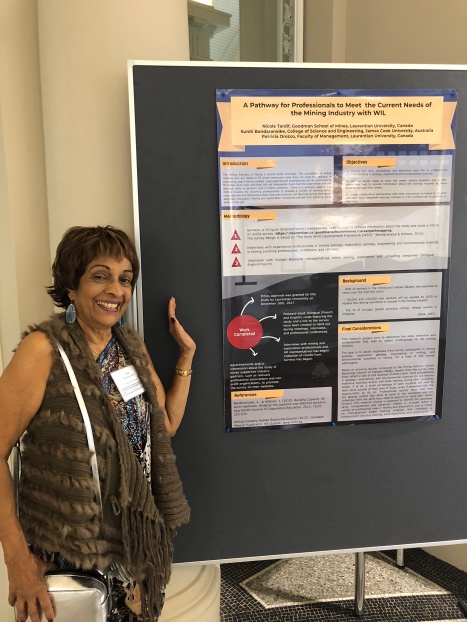I recently heard that Sue Bandaranaike was at the WACE International Research Symposium in Stuttgart, to discuss upcoming research underpinned by the WSD framework. Sue has been a keen advocate for WSD-based research since co-developing the framework in 2009.

Her upcoming study, (a collaboration with Nicole Tardif and Patricia Orozco from Laurentian University) will aim to discover the skills, behaviours and competencies that constitute expertise in mining. The study will involve surveys with mining and exploration professionals, as well as HR representatives from mining, exploration and consulting. With 40% of employees in the mining and metals industries expected to retire in the next few years, this will be a timely piece of research, and a good example of putting the RSD into practice.
I would like to be keen too with research pentagon learning skills. Now need to be more serious to explore what best way to approach research skills mastery before impacting others of academic environment in workplace. One of best ways to approach the pentagon learning skill spreading is starting from bottom up or top down. The journey you have done was visiting and collaborating with academics in provinces first before continuing to other bigger audiences..Great visiting and collaborative with my people in Indonesia..
From my experience with tertiary and secondary school students in Adelaide, South Australia, I would suggest that precision of thought and observation is essential to rebuild your own WSD distinctive and unique framework for your particular workplace. Close discussion, brainstorming and collaboration all feature preferably with reference to generic WSD pentagons and ‘case studies’ relevant to your workplace. Experimentation with your model and practice applications to your work place need to follow. Leave the model for a time to ‘brew’ and return for further fine tuning to achieve your masterpiece and enjoy that fine cuppa!
I have taken the time to read your essay, and I must say that it is both really educational and useful to me. I am impressed by the wealth of useful information that you provide in your posts. I appreciate you posting that.